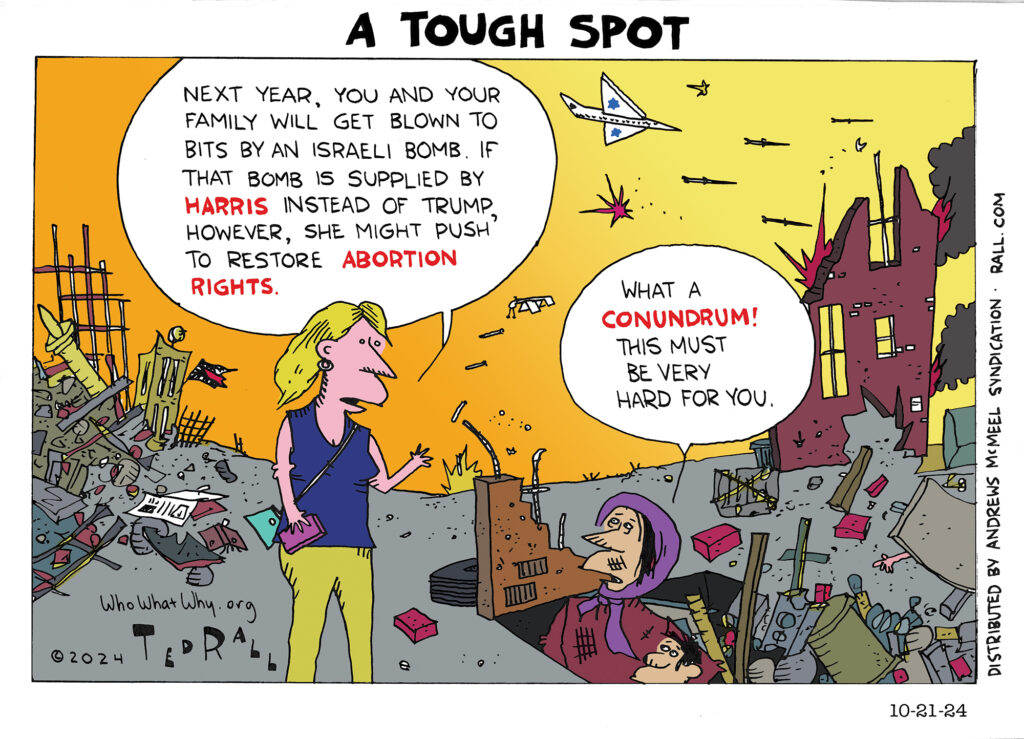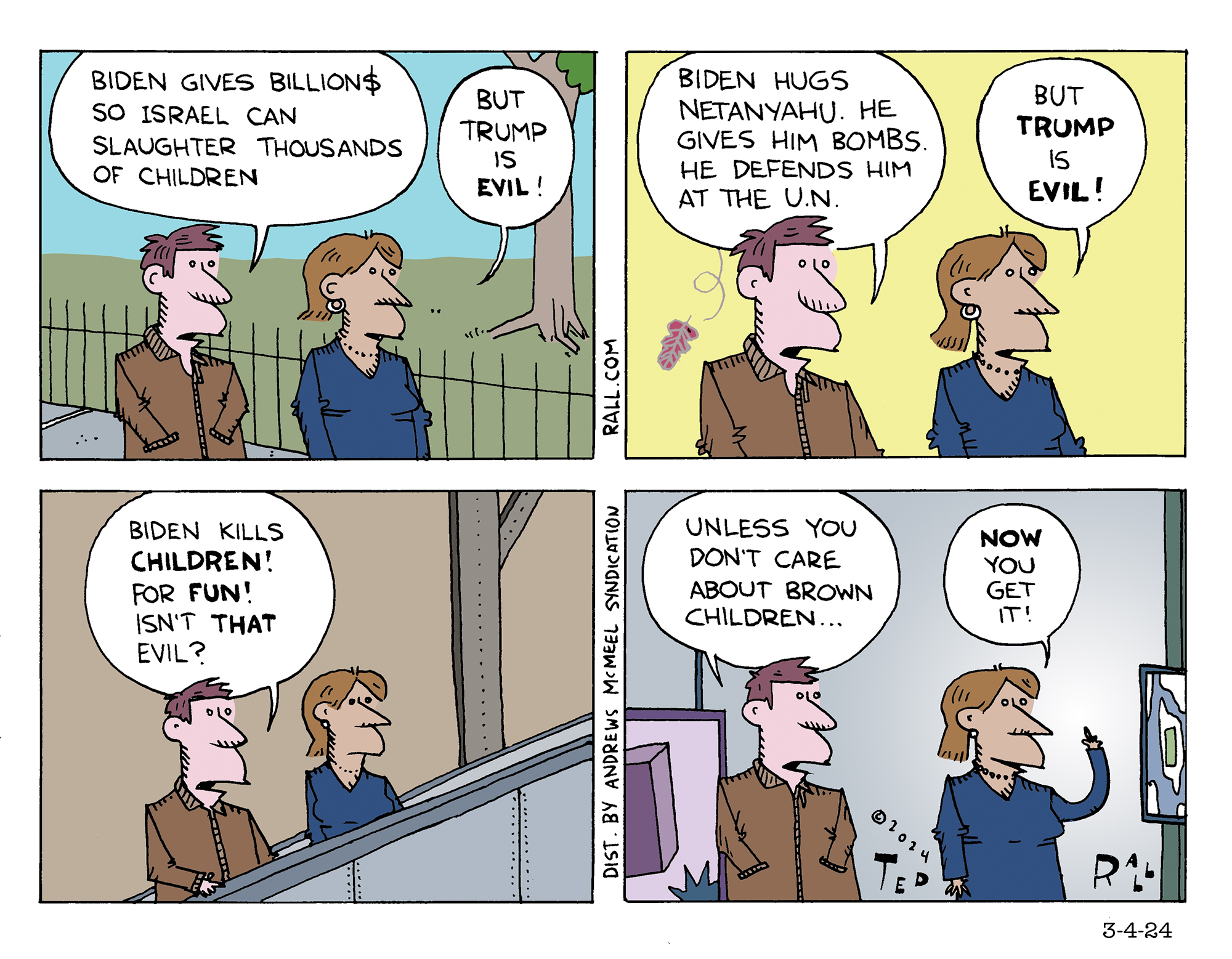With one week left before Election Day 2024, editorial cartoonists with opposing politics and a great friendship, Ted Rall (Left) and Scott Stantis (Right) ask: why is Kamala Harris dead-even in the polls, and seemingly losing ground, against a maniac like Donald Trump? How did we get here? What did Biden, Harris and the Democrats do wrong and what could they have done better? And, if she wins, will they learn any lessons from the votes they left on the table through their own unforced errors?
Joining Ted and Scott is award-winning political cartoonist Michael deAdder, a Canadian artist whose work has appeared in The Washington Post and many other American publications. What is the view of the American race as seen by our northern neighbor? What would be the likely reaction to each potential outcome?
Watch the Video Version: here.



 Many people who typically vote Republican but dislike Trump, and others who typically vote Democratic but dislike Harris, are wrestling with a fundamental dilemma of the voter who lives in a duopoly.
Many people who typically vote Republican but dislike Trump, and others who typically vote Democratic but dislike Harris, are wrestling with a fundamental dilemma of the voter who lives in a duopoly. The U.S. government wastes approximately $4.5 trillion each year. “A billion here, a billion there, and pretty soon you’re talking real money,” Senate Minority Leader Everett Dirksen, an Illinois Republican, famously said, and said often. In this case, you’re talking about thousands of billions. ($4.5 trillion is the sum total of annual military spending that exceeds what we need to defend the United States homeland, the higher interest paid on the national debt due to the Fed’s attempts to fight inflation, federal subsidies paid to people and companies who don’t qualify for them, uncollected taxes the IRS doesn’t even attempt to get and foreign aid, much of it to rich countries.)
The U.S. government wastes approximately $4.5 trillion each year. “A billion here, a billion there, and pretty soon you’re talking real money,” Senate Minority Leader Everett Dirksen, an Illinois Republican, famously said, and said often. In this case, you’re talking about thousands of billions. ($4.5 trillion is the sum total of annual military spending that exceeds what we need to defend the United States homeland, the higher interest paid on the national debt due to the Fed’s attempts to fight inflation, federal subsidies paid to people and companies who don’t qualify for them, uncollected taxes the IRS doesn’t even attempt to get and foreign aid, much of it to rich countries.)